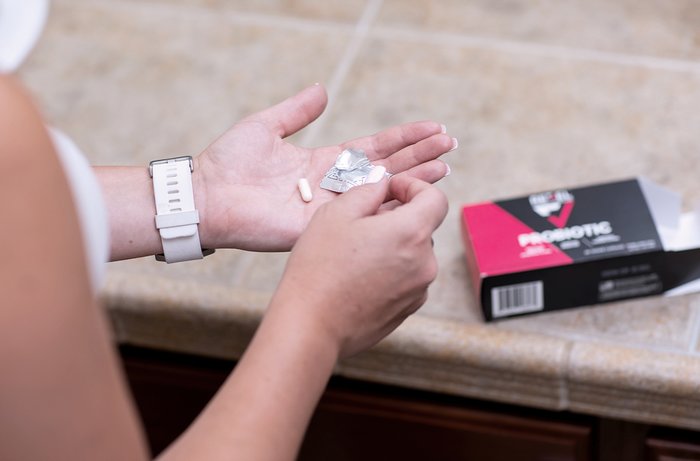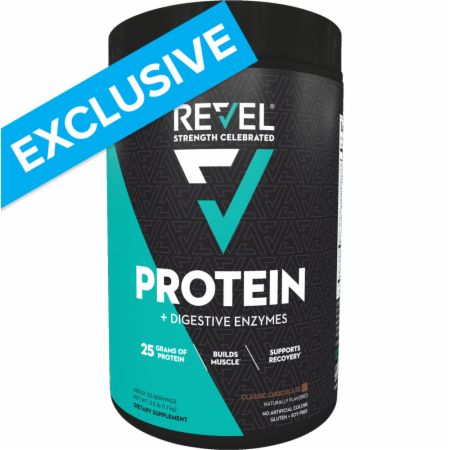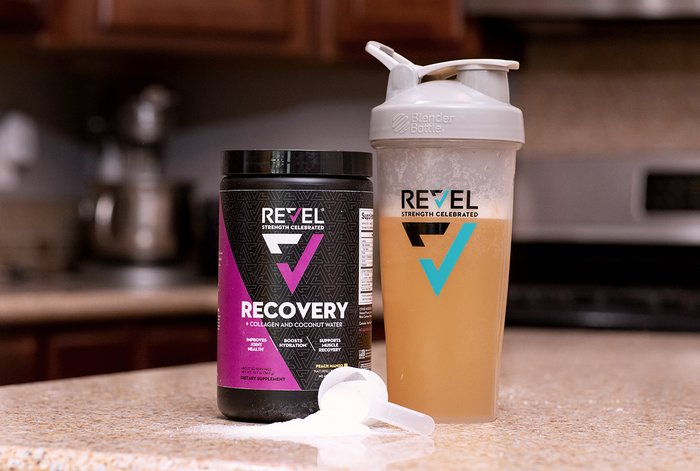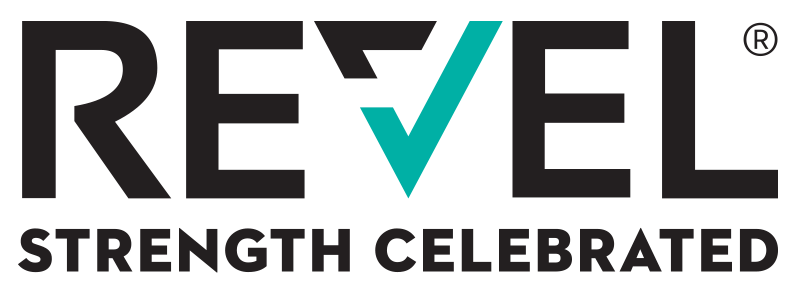The workout is over and you're covered in sweat, visual proof of a hard effort. You pushed yourself to the max, lit your glutes on fire, and now you're feeling great about a job well done.
But this is when the real work starts. What many women fail to realize is the real magic doesn't happen when you're in the gym, it happens when you're out of it. Training tears your body apart. It's when you rest and recover that your body repairs all those damaged muscle tissues and ensures you come back stronger than ever before.
Adopt some of these eight habits to benefit more from the workouts you already do and kick your fitness up a notch.
1. Grab the Foam Roller
Chances are you're already doing a few stretches to finish up your workout. While you're on the mat, add foam rolling into your routine.
Foam rolling is an excellent technique to break up scar tissue from exercise, stimulate blood flow, and loosen the muscle tissues to lessen post-workout pain.
What's more, if you do it routinely, foam rolling can keep you supple and help you side-step injury in the long run.
2. Take a Probiotic
Probiotics improve recovery? Weird, but true. The healthy bacteria in your gut play a key role in keeping not only your digestive system but your immune system healthy as well.

A healthy immune system doesn't just guard against illness, it enables your body to tolerate the stressors of day-to-day life—exercise included. Hard workouts take more of a toll and are harder to recover from when your immune system isn't up to snuff.
And since up to 80 percent of your immune system resides in your gut, this all begins with proper probiotic levels.[1]
Not into eating yogurt or kimchi every day? Pick up a quality probiotic supplement (like this one from Revel) and you'll be all set.
3. Consume Enough Protein
Think protein shakes are just for people trying to get big? Think again. A post-workout protein shake gives your muscles a quick shot of amino acids to jump-start recovery, while also helping you meet your total protein requirements. Not sure how much protein you need in a day? Use this protein calculator.
Revel Protein is a great choice. It has added digestive enzymes for optimal digestion and absorption, as well as fiber to keep you full.

4. Eat Real Food
While the post-workout shake tells your muscles it's time to rebuild and repair, it's not enough to fuel recovery by itself. About an hour after your workout, eat a balanced post-workout meal of fresh foods.
For this meal, you want a solid source of protein along with some complex carbohydrates.[2] Now is not the time to skimp on those carbs! Your body will use them to replenish muscle glycogen levels.
Even if you follow a low-carb diet, consume most of the carbs you do allow shortly after your workout. This is when your body can optimize its use of them.
Also be sure to include fresh veggies or fruits, which provide antioxidants and other important micronutrients that help your body recover. Plus, they taste good!
5. Rehydrate
When you sweat during exercise, you lose a lot of water, affecting your muscles' (and other systems') ability to function. A post-workout hydration drink can help replace it to promote optimal recovery.
You could grab a sugary sports drink, but Revel Recovery provides greater benefits without the empty calories. It's made with coconut water, one of the best natural ways to rehydrate and promote faster recovery from exercise.[3] Coconut water's natural potassium content helps you absorb the liquid you ingest, making it better than water alone.

This multifunction fitness supplement also contains vegan branched-chain amino acids, which will help take your recovery one step further. And it tastes so good you'll want to sip it all day long. Dehydration? Never heard of it.
6. Consider Collagen
One more bonus ingredient in Revel Recovery is collagen. Collagen is a protein peptide that makes up tendons, ligaments, and other connective tissue. Healthy connective tissue is crucial for avoiding training injuries, such as tendonitis or torn ligaments, that can derail your hard-earned progress.
Collagen supplements help support joint health so you can stay in the game. You can also get collagen from bone broth, meat, and fish—especially if you eat the skin.
7. Periodize Your Program
The kind of exercise routine you perform in the first place is a huge part of the recovery process. Even if you don't consider yourself a hardcore athlete, it's super important to periodize your training.
Periodization means there are times you push hard and times you back off and focus on lighter workouts, rest, and recovery. This approach is typical among athletes, as it ensures you push hard and improve physical fitness, while still allowing adequate rest.
Every week, build in easy exercise and recovery days around your tougher workouts. Every month or so, trade your challenging program for a whole week of less-intense workouts.
If you follow a Bodybuilding.com All Access program, you're probably periodizing your training already, since recovery days are built into the schedule. Take an easy week after you finish each program and you'll be covered.
8. Take 10
After you shower and head out of the locker room, don't just rush to carry on with the rest of your day. Instead, take 10 minutes for yourself. Take a scenic route home, sit with your thoughts, savor that delicious post-workout meal, or find something small you enjoy to cleanse the stress from your life.
Most of us are in go, go, go mode and rarely let up. This contributes to feeling overwhelmed, stressed out, and unable to cope.
Any form of stress, be it life stress or training stress, takes a toll on our ability to recover from physical exercise.[4] The body can only handle so much, so it's vital to give yourself a breather every now and then to regain your sense of calm and control. Remember, life is about more than work, fitness, and nutrition!
Recovery isn't a one-step process. It's basically everything you do when you're not working out. Do it right, and your time in the gym becomes worth so much more.
References
- Zoumpopoulou, G., Pot, B., Tsakalidou, E., & Papadimitriou, K. (2017). Dairy probiotics: Beyond the role of promoting gut and immune health. International Dairy Journal, 67, 46-60.
- Ziegenfuss, T. N. (2004). Postworkout carbohydrate and proteinsupplementation. Strength & Conditioning Journal, 26(3), 43-44.
- Saat, M., Singh, R., Sirisinghe, R. G., & Nawawi, M. (2002). Rehydration afterexercise with fresh young coconut water, carbohydrate-electrolyte beverage and plain water. Journal of Physiological Anthropology and Applied Human Science, 21(2), 93-104.
- Budgett, R. (1990). Overtraining syndrome. British Journal of Sports Medicine, 24(4), 231-236.


